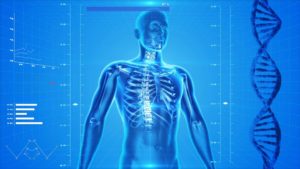
Thousands of people in Florida suffer from drug or alcohol addiction every single day. Opioids alone kill 16 people every day in the sunshine state. The addiction epidemic in this country is real and not only as bad as is reported, but likely it is worse as there is absolutely a margin of addicts who are not reported due to homelessness or false reporting. Most of the time we hear about the addiction or drug abuse epidemic in terms of opioids which are haunting not only Florida and the wider United States, but also the world. However the epidemic isn’t only due to just opioids. Indeed, plenty of drug abusers are chemically dependent on dangerous drugs such as cocaine, amphetamines, alcohol and other illicit substances. In fact thousands die every year due to drug overdose. 660,000 people across the world died in 2016 just from drug related complications. This is not a Florida issue, it’s not even just a United States problem. This is a world wide, human crisis that must be addressed. Education is one of the first places to look for answers to a crisis. When something is hurting such a wide swath of the world’s communities, it’s a solid bet that we are undereducated about the matter. However, there is a fair amount of data found through different scientific studies.
According to the National Institute on Drug Abuse through all of the different kinds of research that has been done in the multitudes of studies completed the scientific research community have over the years produced a substantial amount of knowledge about drug and alcohol chemical dependence and the nature of substance addiction for scientists to work from. Through the analysis and concatenation of data across the conclusions of many years of research that have evolved treatment strategies based on sound research, that have shown themselves to help people who are struggling with drug or alcohol addiction to get clean and enter recovery with the legitimate hope of a happy and healthy sober life.
Is Substance Abuse Treatable?
 Substance abuse is absolutely treatable. In fact, treatment is likely the only way to recovery for most people suffering from drug or alcohol addiction disease. This pervasive illness is persistent and holds onto its victims tightly. As a result, withdrawal symptoms, the reaction a chemically dependent body has when a person takes away its source for the substance it has been relying on, are often intense and sometimes medically complicated. If a person is in Florida and is looking to get sober, in order to safely and successfully detox from the substance that a person is addicted to, the safest choice is to do so at one of the medical detox centers in Florida.
Substance abuse is absolutely treatable. In fact, treatment is likely the only way to recovery for most people suffering from drug or alcohol addiction disease. This pervasive illness is persistent and holds onto its victims tightly. As a result, withdrawal symptoms, the reaction a chemically dependent body has when a person takes away its source for the substance it has been relying on, are often intense and sometimes medically complicated. If a person is in Florida and is looking to get sober, in order to safely and successfully detox from the substance that a person is addicted to, the safest choice is to do so at one of the medical detox centers in Florida.
Because of the more recent spotlight on the addiction community due to the uptick in overdose related deaths, more and more people are seeking out treatment. More good news is that treatment is becoming more sophisticated and prevalent throughout the state, country and the whole world. Local state and federal governments are starting to respond to the addiction crisis by passing restrictive measures via legislation to keep drugs out of addict’s hands. But they are also, thankfully, passing legislation to create more funding for addiction treatment.
Is There a Cure for Chemical Dependency and Addiction?
There’s nothing anyone wants more for a chronic disease than a cure, especially if the chronic disease is something that you suffer from, or that affects your community. The drug epidemic in this country is such that almost everyone knows someone who is affected by addiction. The disease is taking a toll on our communities and institutions in a big way.
Unfortunately like other chronic diseases such as asthma, heart disease, or chronic obstructive pulmonary disorder, otherwise known as COPD, addiction has no cure. However the good news is that like those chronic diseases listed above, substance addiction can indeed be managed.
Physical and Mental Effects of Substance Abuse Disorder
 It is a natural part of life to ask “why”. An addict may come to the realization that they desperately need help. They may realize just how advanced their addiction is and ask themselves “how did I get here”? It’s a complicated question for many reasons when it comes to alcohol and drug addiction. Addiction brings with it a very tangible, physical aspect to it. The body deteriorates under many kinds of addictive substances. Those who smoke may be experiencing respiratory complications, even pulmonary dysfunction. Someone who injects their drugs into their system may experience collapsing veins, and problems with the cardiac system. With a myriad of different physical symptoms that accompany drug and alcohol substance use disorder, an addict may be quite physically uncomfortable by the time they reach detoxification and rehabilitation.
It is a natural part of life to ask “why”. An addict may come to the realization that they desperately need help. They may realize just how advanced their addiction is and ask themselves “how did I get here”? It’s a complicated question for many reasons when it comes to alcohol and drug addiction. Addiction brings with it a very tangible, physical aspect to it. The body deteriorates under many kinds of addictive substances. Those who smoke may be experiencing respiratory complications, even pulmonary dysfunction. Someone who injects their drugs into their system may experience collapsing veins, and problems with the cardiac system. With a myriad of different physical symptoms that accompany drug and alcohol substance use disorder, an addict may be quite physically uncomfortable by the time they reach detoxification and rehabilitation.
Concurrently the mental or emotional parts of an addict suffer greatly under the influence of any addiction, but especially those that alter brain function such as any opioid, amphetamine, etc. Many of the most common drugs change the way someone’s brain works because the drugs bind to different parts of the brain to cause the side effects the addicted user is coming back for. Sometimes longtime drug or alcohol users can develop hallucinations or some kind of psychosis as a result of lost brain function. Someone suffering from drug or alcohol addiction may also see a shift in moods. They may become more aggressive, or more depressed and low energy. This shift in emotional landscape may also cause the addict to wonder about how they became the person they are today.
The Nature and Nurture Aspects of Drug and Alcohol Addiction
Society has too often encouraged a stigma against those who suffer from the chronic disease of drug or alcohol addiction. Therefore the general public has long been under educated in terms of what it means to have an addiction and what aspects of life or genetics helps to engender the disease. For years the contentious debate of nature versus nurture has plagued an addiction debate. For the purposes of marginalizing the community of those who do suffer from the disease of drug or alcohol use disorder, politicians or thought leaders have at times refused to accept a focus on the possibility that there is a genetic aspect of having the disease. Indeed, many of them wouldn’t even accept that addiction is a disease. And though that stigma persists in some social circles, it is widely believed today that both nature and nurture are at fault for someone developing a substance abuse addiction.
Nature – The nature aspect of a drug or alcohol chemical dependency and addiction is to be blamed on someone’s genetic code. If a person suffering from drug and alcohol dependence has a family member who has also suffered from addiction it is likely that part of the reason they had a propensity for substance abuse started with the genes they were given during fetal development. This genetic input is more powerful the closer in relation the family member who has suffered from addiction is. All of that is to say, if an addict’s great uncle suffered from an addiction to drugs or alcohol the addict will still have a genetic propensity toward the chronic disease, but it will be a less potent factor in the addict developing an addiction than if they had a parent, a father or mother, who suffered from addiction.
Nurture – It’s much easier to believe, from an outside perspective, that addiction is due to environmental, or nurture, elements than any natural inputs. Natural elements takes into consideration things like peer pressure, availability of the substance that the addict is chemically dependent on, socio economic elements, trauma, homelessness, and more.
It is easy for these origins to seem like more compelling reasons for someone to develop addiction than that of a genetic component. Tragically it is also true that some people reject the possibility of a genetic influence on a person’s propensity for drug or alcohol addiction because they are unwilling to believe that the addict is incapable of opting out of the disease, that they aren’t choosing the drug or the drink every time. These people believe wholeheartedly that someone suffering from addiction lacks self control and responsibility. If nature shares space on the inputs in a person that can lead them to alcohol and drug addiction disorder, along side nurture aspects, than it is not acceptable to treat them like they are lesser, or like they don’t deserve help and care, because if they are genetically predisposed the disease there is at least some aspect of it that is out of their hands.
Interestingly, the natural and genetic aspects of why someone may develop drug or alcohol addiction ebb and flow with one another throughout a person’s life. They play off of one another. For instance, as a person moves up through age, the genetic propensity toward abuse narrows and allows the peer pressure, and anxt of the teenage years to take over. During adolescence a person’s addictive tendencies are more controlled by the elements of environment surrounding them.
The Fundamentals of Recovery for Substance Use Disorder
 People in the sunshine state can find hope through treatment at one of the detox and rehab centers in Florida . Psychiatric services, medically licensed and qualified clinicians, and a supportive community of people suffering through the same types of treatment are elements of the kind of treatment a person suffering from drug and alcohol addiction can expect at these treatment facilities.
People in the sunshine state can find hope through treatment at one of the detox and rehab centers in Florida . Psychiatric services, medically licensed and qualified clinicians, and a supportive community of people suffering through the same types of treatment are elements of the kind of treatment a person suffering from drug and alcohol addiction can expect at these treatment facilities.
The different stages of addiction recovery are vital to the success of the patient going through the programs. If the treatment is not personalized to the patient, this means that the treatment plan is developed considering the context of the patient getting ready to go through the program, then the likelihood of a successful transition from deep addiction to recovery is unlikely. First and foremost treatment must take into consideration the whole person, each element of their past and their present, any mental health disorders they may suffer from, as well as any physical maladies such as chronic pain, that they may suffer from. It is probably obvious, but if a treatment center is unaware of chronic pain in a patient, or they do not consider it with the treatment plan of a patient, they may be setting the person up for failure since chronic pain is such a driver of drug and alcohol addiction, specifically in this case opioids.
According to the National Center for Biotechnology Information, there are five different stages of treatment. They are as follows:
Early acknowledgement and awareness of the need for help: As an addict suffers in the midst of their addiction, at some point they reach a point, hopefully, where their addiction becomes real to them. In these moments they may become more aware that their use of whatever substance, is not innocent. They may notice that even when they don’t want to engage with the addictive behavior, they can’t stop themselves. This is often when someone realizes they have a real issue. So many people engage in drug or alcohol abuse believing they will be able to resist chemical dependency, but the problem is that these substances are tenacious and our bodies are built to adapt. During this early stage of recovery, though they experience some awareness that they have a problem, the addict continues to engage in their addictive behaviors. Though this doesn’t seem like it walks them any further down the road to recovery, it is arguably the most vital step in recovery because it is the foundation. If someone cannot see the problem, they certainly won’t be able to recover from it. Some addicts reach this point sooner than others, but one thing is for sure, if they don’t reach this stage, they don’t move forward with recovery. Admitting you have a problem, really is the first step.
Consideration or exploration of possible action against addiction: This stage of recovery sees the person struggling with chemical addiction starting to explore the actions they can take against the chronic disease of addiction, in order to get out from under it’s heavy hold on them. The addict may begin to explore what treatment would look like and might start to seek out education on the stages of recovery and treatment. This is also the stage of recovery when addicts may start to consider talking to someone they trust about their addiction. In this stage recovery begins to make its way to being action based instead of analysis based. The drug or alcohol addict starts to externalize their concerns and seek out where it might be safe to admit their problem and ask for help.
Exploring recovery and abandoning the last dregs of denial: During this stage of recovery the addict moves past denial and into a motivated state of being. This drives them to a more concerted effort to understanding what their addiction means and what treatment might look like. They will continue to educate themselves and will absolutely talk to a family member, trusted friend, or doctor about the issues they are experiencing and their concern that they have developed an addiction. This is also the stage when most drug or alcohol addicts seek out and decide that they will indeed attend a detoxification and rehabilitation facility.
Early recovery, quitting for good, and leaning sober skills: Early recovery is one of the most difficult stages of recovery for someone struggling with drug or alcohol chemical dependency and addiction. This is the stage where an addict has walked away from the substance that was holding them hostage. They also begin to learn the life skills necessary to remain sober for the long haul.
This stage of recovery is one of the most vulnerable times in recovery for the person seeking out treatment. This is the stage when a person recovering from chemical dependency and drug or alcohol addiction begins to analyze the source of the addiction. Through their treatment they start to understand addiction in general better, as well as understanding the disease as it relates to them personally. It’s difficult to face for most addicts, the fact that certain parts of their lives will no longer work if they want to continue pursuing addiction recovery. As they go through therapy they may find that certain relationships are triggers for their addiction. Maybe they have to stop doing an activity that they believed defined a part of who they are, because the environment lends itself to addiction. But even without realizing such loss, early recovery with it’s detoxification and rehabilitation is an intensely personal and vulnerable time for addicts. Detoxification brings with it a veritable plethora of withdrawal symptoms which, if the addict isn’t being medically supervised, could either cause substantial medical risks, or even trigger someone so much that they give up on recovery and revert right back to using.
Active Recovery and Maintenance: By the time the patient gets to this stage of recovery so many of the brutal parts of drug and alcohol addiction treatment have concluded and they will be looking down the life-long journey of active recovery. Because addiction is a chronic disease, it is not curable, as stated above, but it is manageable. Active recovery and maintenance is the stage of recovery that the addict will remain in, unless they experience a relapse.
 Florida Treatment Offered For Drug and Alcohol Addiction
Florida Treatment Offered For Drug and Alcohol Addiction
FHE Health offers best in class treatment at some of the best rehab facilities in the Florida. With a comprehensive and individual focused addiction recovery program, substance abusers will be met with a qualified and licensed medical staff, as well as therapists who are dedicated to the recovery of each patient. Call us today for more information about our medical detox center in Florida, psychiatric services, and/or rehab programs.






